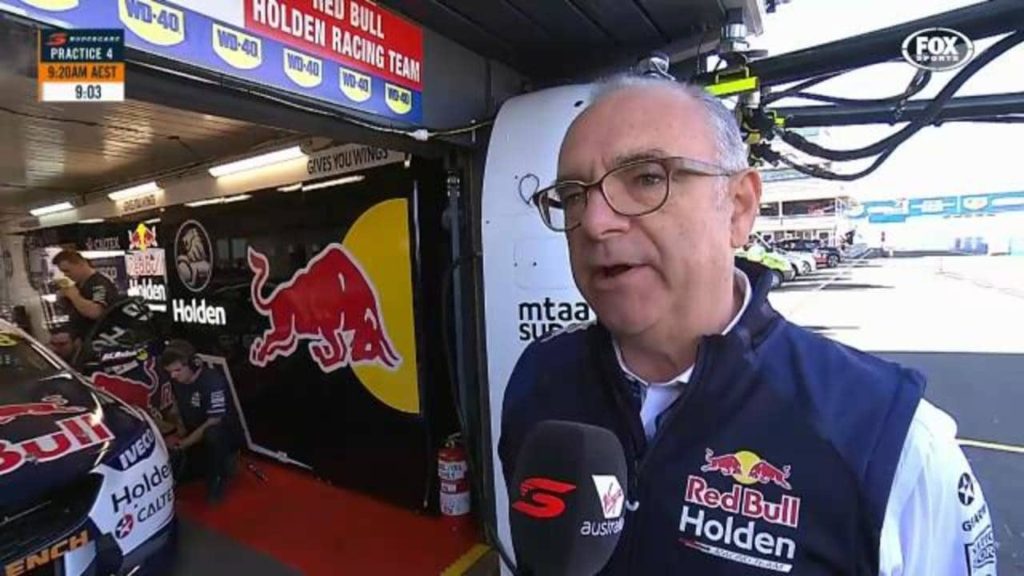THE FUTURE of going motor racing sustainably is a tricky one.
And I’m not talking about ‘sustainable’ as in ‘green’, I’m talking about making sure people can continue to afford doing it, and get some form of value from it so the wheels can keep turning.
In recent times categories like Formula One and Supercars have battled on finding the middle ground in that equation; the costs go up while the number of eyeballs watching either stagnates or goes down.
Some seem to be going OK: IndyCar are on an upward, if not particularly steep, growth curve while NASCAR has worked hard to recover from years of shocking declines in ratings and attendances. In the UK, the British Touring Car Championship seems to have struck a perfect balance by aiming to be exactly what it is – a domestic Touring Car Category made up of a mix of privateers and professionals – and nothing more than that.
In this part of the world all the talk is about ‘Gen III’, the critical next-generation Supercar rule set that will hopefully surge the sport forward.
It must be a car that is cheaper to build, cheaper to run and more accessible for everyone in order to at the very least maintain the sport, while improving the financial models for teams.
All of the classic bywords have been thrown around. ‘Cost-effective’ is a cracker. ‘Working with stakeholders’ another. ‘Manufacturers Council’ is a new one which, given there are only two actively engaged brands in the championship, must be a council more akin to a small country town rather than a major CBD.
Either way, finding the right mix is important and as much as racing series covet the involvement of major brands, they simply must find a way they can operate without them, too.
There’s irony in the fact that one man to have courted and married both of the current brands involved with Supercars agrees.
In the ever-growing successful history of Triple Eight Race Engineering, Roland Dane has engineered relationships with both Ford and Holden to the point where at one point or another in the teams’ life, his team has been the factory team for both.
Currently the factory team of Holden, Dane is cautious when it comes to any further investment by the big brands in motorsport.
“Manufacturers used to play a far bigger part in the commercial side of this business, but that part is far smaller today,” He told author Dale Rodgers, in a recent interview for The Race Torque.

“We are fundamentally the Australian Touring Car Championship and our cars should be facsimiles of the road cars. It should represent a continuation of, what I will call, the Glorious History since the 1960’s of the Touring Car Championship albeit under a different name today. It helps legitimise what we do, so we want to have their endorsement even if we don’t have very much of their money any more rolling in.”
Endorsement is the key word; a model that allows brands to spend a little but get a lot is critical moving forward. The current rules, ‘Gen II’, perhaps lent a little too much towards attracting major companies rather than nurturing the ‘back door’ factory effort that could have a much more sustainable impact.
“The success or failure of Nissan is difficult to gauge,” Dane says. “Volvo was fairly successful but they were victims of a complete change in approach for the brand worldwide, unfortunately. It would not have mattered what we did (as a category), times move on.
“Do I want to see us continue with Holden and Ford collectively, I would love to think so. If there is one or two new people involved, that would be great. Do you want lots of people… No, it is not GT racing and they can’t all win.”
Next year a massive reshuffle of the field will see the Nissans depart and two more Mustangs added to the mix, opening up current Ford teams DJR Team Penske and Tickford to competition. This, the Triple Eight supremo opines, is a positive thing.
“The policy of having only one team running your make of vehicle is a mistake. You don’t know whether the vehicle is any good or is the team no good. You don’t know. You need a measuring stick. With Holden, and to an extent with Ford, there is nowhere to hide at the moment. Your competitor will soon find you out. When we have had weak moments over the last couple of years, Erebus have given us a hard time, which is how it should be.”
Roland Dane’s opinion is often criticised by some elements of the Supercars fanbase because it tends to be more vocal – or at least, more reported on – than most of the others in the paddock and because his team is the best in the business, doing most of the winning.
But in this case, lets hope Supercars head-honchos are listening because he’s somewhere near the mark in what needs to come with the Generation III rules.. The long-term future of the category and the teams involved relies on it.



Comments